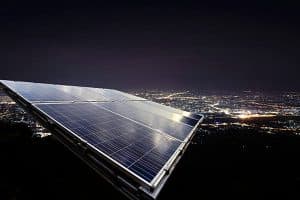Kyocera Corporation has supplied 786 of its solar modules to medical facilities in Dushanbe, the capital city of the Republic of Tajikistan.
A 120kW system was constructed at Diakov Hospital and a 40kW Kyocera solar panel based array at the Research Institution of Obstetrics Gynecology and Perinatology.
The solar systems are not only Kyocera’s first installations in the country, but also Tajikistan’s first grid connected systems. Combined, they will generate approximately 196MWh of electricity annually.
Construction of the systems was funded by the Japanese government’s Official Development Assistance (ODA) initiative – a long-running program that Kyocera has participated in for many years.
Kyocera provided a solar energy system to a village in Pakistan as part of a Japanese government ODA project in 1984 and since that time has been involved in approximately 40 ODA projects; supplying more than 3MW of solar capacity to countries in Asia and Africa.
While the 160kW of solar power systems might not seem like news in some countries, there are many nations yet to make substantial inroads into solar electricity production; Tajikistan among them – so these very visible systems will help raise awareness of PV technology in the country.
Unlike many countries, Tajikistan has an impressive record when it comes to clean electricity. According to the CIA Factbook, just 8.8% of the nation’s energy production is coal based. 91.2% of its total installed energy generation capacity is hydro-electric. In 2009, other forms of renewable energy in the country supplying the mains grid were non-existent.
Kyocera solar panels have stood the test of time. In 2009, the company celebrated the 25 year anniversary of the Sakura Solar Energy Center. Installed in 1984, the 43kW grid tied system had been exposed to over 45,000 hours of solar irradiation by that point and the panels’ conversion efficiency had only dropped by 11.9%.
Another 25+ year old Kyocera-based system in Sweden has seen no significant change in performance in the modules.









































